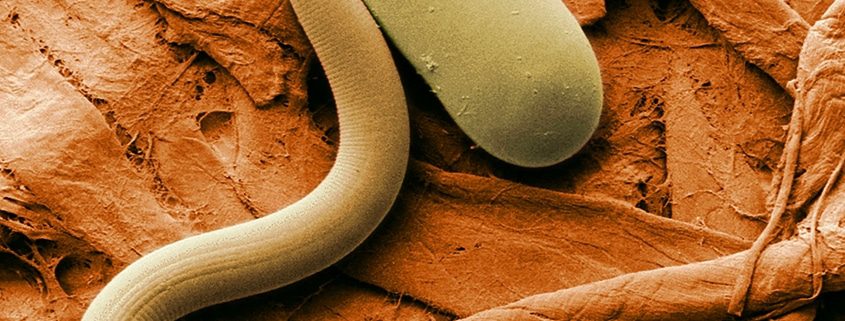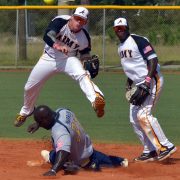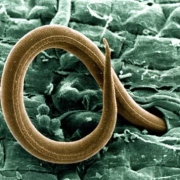Dopamine, serotonin and gait
Most of us, when thinking about dopamine, serotonin or neurotransmitters in general, think of behavior, for the most part. Yet, if you tend to agree with most experts in the field of functional neurology, you can appreciate that behavior is a derivative of how the brain has and is wired. That being said, the brain’s most primitive reason for wiring is to mange sensory-motor experiences that lead to, amongst many feats, standing upright.
Could things be different if you were a nematode?
A nematode constitutes the phylum Nematoda. They are considered as a diverse animal phylum inhabiting a broad range of environments. Although quite rudimentary, they do possess a tubular digestive system with opening at both ends. They have successfully adapted to nearly every ecosystem. They represent 90% of all animals on the ocean floor.
In a nutshell, nematodes are slender worms. They have a relatively distinct head and a mouth that has either three or six lips. They do possess a nervous system that allows for movement, amongst other functions.
What was found is that these nematodes respond differently to serotonin and dopamine, on a motor level. If it’s true that humans can walk or run, it’s also true that they cannot do something in between the two. Similarly, a nematode has “gaits”. It can swim or it can crawl.
Scientists wanted to know if it was the same networks that were responsible for the crawling or the swimming.
When the 8 dopamine neurons of these creates were selectively taken out, the nematodes could still swim, and still crawl, but the couldn’t transition from swimming to crawling. They had lost the ability to initiate the crawling gait.
On the contrary, when using optogenetics to put light-activating genes into the namatode’s dopamine neurons, they could manage the transition from swimming to crawling just fine.
The conclusion: in the nematodes, serotonin controls the crawl-to-swim and the dopamine controls the swim-to-crawl.
It’s interesting to note that, in humans, for example, we often hear many experts speak about somehow balancing neurotransmitters. Could it be that making sure that we have crawled (which stimulates the pons, responsible for serotonin) and creeped (which stimulates the mesencephalon, responsible for dopamine) could be a variable of the equation?
https://blogs.scientificamerican.com/scicurious-brain/one-chemical-makes-you-crawl-another-makes-you-swim-if-you-are-c-elegans/









Leave a Reply